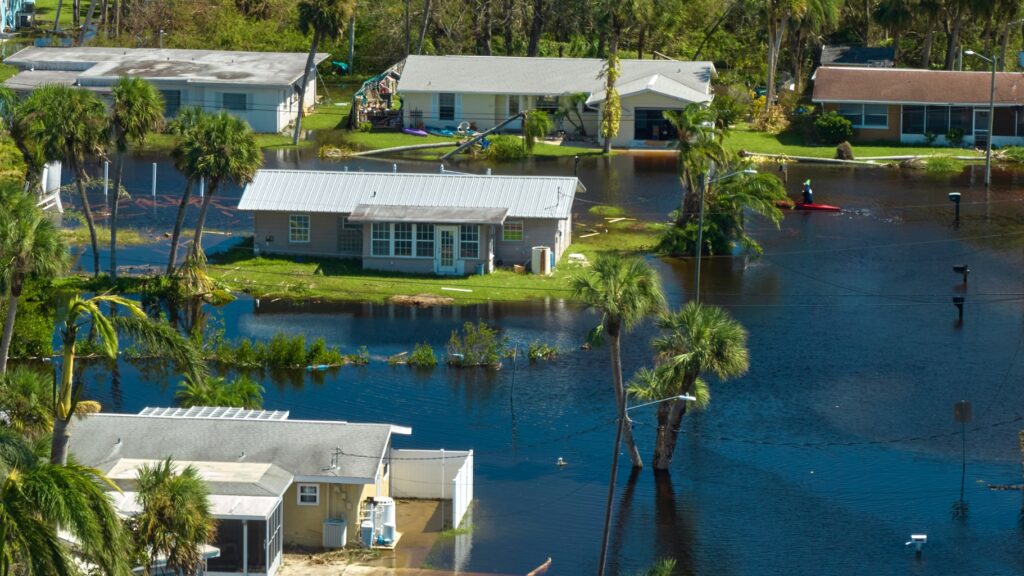Life After the Flood: A Comprehensive Guide to Disaster Recovery
Every year, natural disasters such as floods, hurricanes, earthquakes, and wildfires affect millions of people.
These events cause extensive damage to infrastructure and homes and disrupt the lives of those affected in many ways. Recovery from a disaster can be a long and challenging process that requires careful planning and preparation.

In this guide, we will discuss everything you need to know about disaster recovery and the steps you can take to rebuild your life after a flood. From assessing the damage to seeking financial assistance, we will cover all aspects of post-disaster recovery.
Contents
Toggle1. Understanding the Impact of Flooding
Floods are one of the most common and destructive natural disasters. They occur when an area experiences excessive rainfall or a body of water overflows its banks. Flooding can cause damage to buildings, roads, bridges, and other structures as well as contaminate water sources and disrupt transportation systems.
The impact of flooding on individuals and communities can be devastating. It can result in displacement, loss of personal belongings and livelihoods, emotional trauma, and even death. Understanding the consequences of a flood is crucial to taking necessary precautions and preparing for a successful recovery.
2. Immediate Steps Post-Flood
When a flood strikes, it is important to prioritize your safety and that of your loved ones. If you are in a flood-prone area, always have an evacuation plan in place and be prepared to leave at a moment’s notice.
3. Assess the Damage
Carefully inspect your home for any structural damage or potential hazards. If you see any cracks, bulges, or other signs of damage, contact a professional for assistance before entering the building.
4. Document the Damage
Take photos and videos of all the damage to your property. This will be important evidence when filing an insurance claim or seeking financial assistance.
5. Contact Your Insurance Company
Inform your insurance company about the flood damage as soon as possible. They will guide you through the claims process and provide the necessary support for your recovery.
6. Stay Informed
Keep up-to-date with local news and weather reports, as well as any evacuation or safety instructions from authorities.
7. Cleaning Up After a Flood
Once the floodwaters have receded and it is safe to return home, the clean-up process can begin. Flooding can cause significant damage to the structure of a building and its contents, so it is important to take necessary precautions while cleaning up.
8. Safety First
Put on protective gear such as rubber boots, gloves, and masks before entering the building. Floodwater may be contaminated with bacteria and other harmful substances.
9. Remove Debris
Clear out any debris and mud that may have accumulated in your home. Be careful when moving heavy objects, and wear appropriate protective equipment.
10. Dry Out the Building
Use fans, dehumidifiers, and open windows to dry out your home. This will help prevent mold growth and further damage to your property.
11. Dispose of Contaminated Items
Any items that have come into contact with floodwater, such as food, medicines, and cosmetics, should be discarded. These items may be contaminated and pose a health risk if used.
12. Disinfect the Area
Clean all surfaces with disinfectant to prevent the growth of mold and bacteria. Pay special attention to areas that were in contact with floodwater.
13. Hire Professional Help
If the flood damage is extensive, it may be necessary to hire a professional cleaning and restoration company from New Braunfels, TX. They have the expertise and equipment to safely and effectively remove water, clean and disinfect your home, and restore it to its pre-flood condition.
14. Seeking Financial Assistance
Recovering from a flood can be a costly process. Fortunately, there are various sources of financial assistance available for those affected by a disaster.
15. Federal Assistance
The Federal Emergency Management Agency (FEMA) provides financial aid to homeowners, renters, and businesses affected by natural disasters. You can apply for assistance through their website or by calling 1-800-621-FEMA.
16. Insurance Coverage
If you have flood insurance, contact your insurance company as soon as possible to begin the claims process. Flood insurance is typically purchased separately from homeowners’ insurance, so be sure to check if you are covered.
17. Disaster Loans
The Small Business Administration (SBA) offers low-interest disaster loans for homeowners, renters, and businesses. These loans can be used to repair or replace damaged property and cover other expenses related to the disaster.
18. Rebuilding After a Flood
Recovery from a flood is not just about repairing physical damage. It also involves rebuilding your life and adjusting to a new normal. Here are some tips to help you move forward after a flood:
19. Take Care of Your Mental Health
Experiencing a natural disaster can be traumatic, and it is important to take care of your mental health in the aftermath. Seek support from loved ones, join a support group, or consult a mental health professional if needed.
20. Stay Informed
Continue to stay informed about any potential risks and developments in your area. Stay connected with local authorities and emergency management agencies for updates and instructions.
21. Prepare for Future Disasters
Learn from the experience and prepare for future disasters. This could include investing in flood insurance, creating an emergency kit, and having a plan in place for evacuation or sheltering.
22. Support Your Community
Floods can have a significant impact on entire communities. Consider volunteering or donating to local relief efforts to support those affected by the disaster.
Now that you know the immediate steps to take after a flood, how to clean up and seek financial assistance, and tips for rebuilding after a flood, you are better prepared to handle this type of natural disaster. Remember to always prioritize your safety and that of those around you, stay informed and seek help when needed.
Recommended For You
Do We Need a Reevaluation of Charity Watchdogs?
Most Inside
Most Inside offers high-quality recommendations and valuable updates to enhance all aspects of your life, providing premium guidance and enriching experiences.



